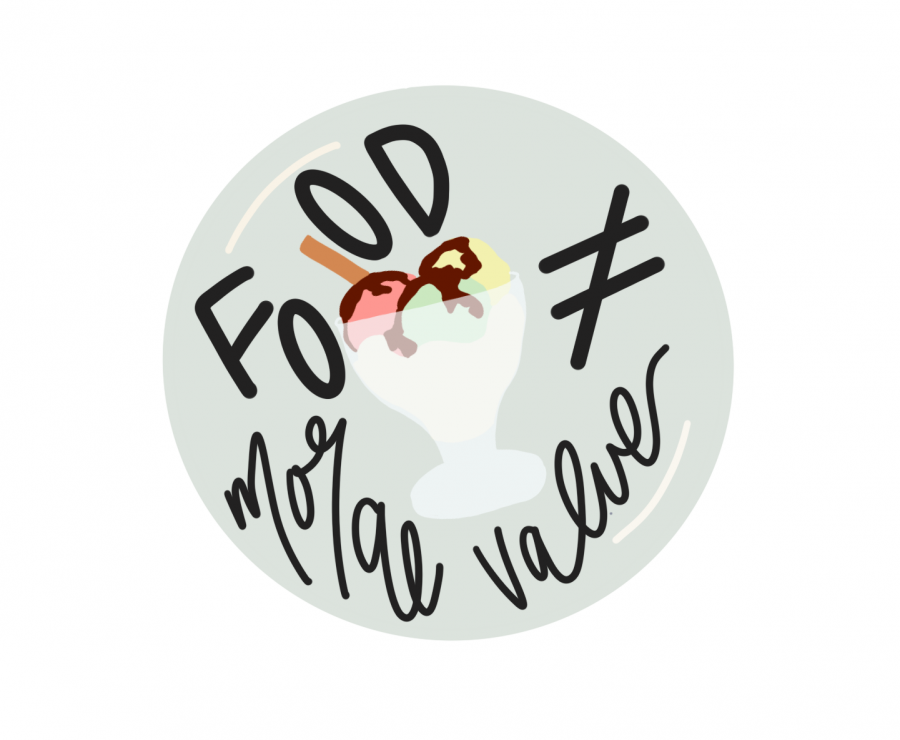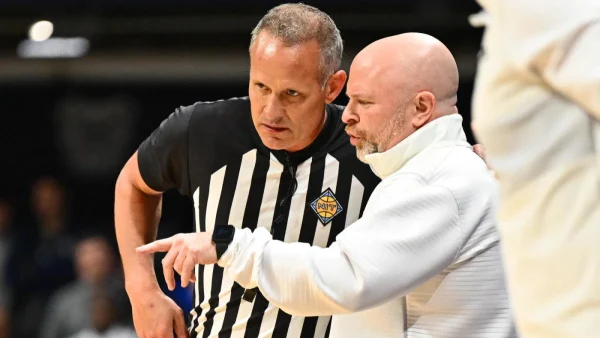It’s Not a Summer Bod, It’s Just Your Bod
When you were a baby, with nothing but instincts to survive, you cried to be fed and ate until you were full and your parents couldn’t make you eat a drop more. This summer, instead of starving yourself for a summer bod or even to make weight for whatever sport you play, try something new. Don’t ignore the baby inside, crying for food or squirming away when they’re full: try intuitive eating.
The intuitive eating movement was started in 1995 when Elyse Resch and Evelyn Tribole wrote “Intuitive Eating: A Revolutionary Program that Works.” Though it sounds like every other diet book, their first principle is to reject the diet mentality because they know that diets and fads do not work. Because of this rejection, intuitive eating is often perceived incorrectly as binging on junk food whenever you are hungry. After eating at Grand dining hall throughout freshman year, you know that you crave fruits and vegetables just as much as any junk food, or at least I do.
As previously stated, the first principle is “Reject the Diet Mentality.” You aren’t failing when you gain weight and you should be mad that our society promotes “skinny” as healthy. Diets often don’t last and having that lingering hope that there might be a way to magically lose 15 pounds in 15 days or to burn fat fast is not going to help you create healthy eating habits.
Their second principle is to “Honor Your Hunger.” When you feel hungry, you should eat. I know it might sound cheesy but your body gets you from place to place, it runs and jumps, it fights a deadly pandemic, etc. You need carbs and fats and protein to do those things. When your body sends a signal to your brain, you should honor that and go feed your body what it wants. It knows what you need to keep moving. Listen to it! If you put off eating until you are starving, you are more likely to just eat whatever is in sight instead of the food your body needs. Food is fuel and you need to treat it as such. You wouldn’t drive with your car on empty for mile after mile; when the light turns on, you should go to the nearest gas station. When you answer that first biological signal of hunger, your body will begin to trust you and food again.
The third principle is you have to “Make Peace with Food.” You need to let yourself eat. If you deprive yourself, that can build into craving and binging. Would you ever tell a toddler not to eat something that they are hungry for (unless it is a non-food item of course). If a toddler is screaming for the blueberries sitting in the fridge, would you tell them no and that they need to stick to a diet? If so, maybe call CPS. If you keep telling yourself not to eat, when you do eat you will experience guilt that will make the process of intuitive eating harder.
Next, their fourth principle is to “Challenge the Food Police.” Before going to protest with your ACAB signs at the ready, protest the thoughts in your head telling you that eating cake makes you a bad person. Food has no moral value in case you were unaware. Food might make you weigh more but it doesn’t make your soul heavier.
Fifth, “Discover the Satisfaction Factor” in food. Food is good; it is meant to taste good and make you happy. It is a basic part of human existence for the food we eat to be good. You don’t have to eat a 100 calorie snack pack if you don’t enjoy it. Don’t eat at the Wild Mushroom in Grand if you don’t like the tofu stir fry or squash whatever.
Their sixth principle is to “Feel Your Fullness.” This is difficult when you were raised in a household where you had to clear your plate before you could leave the table. It is as easy as check halfway through the meal and ask yourself how full you are. Don’t worry about waste, I’m certain you can find a teenager nearby who is never full. Listen to your body. It might be difficult after a lifetime of ignoring it. You can’t make a baby eat more than it wants and new parents are taught to never force them to eat. This is hard, I know. It is a process.
A misconception about intuitive eating is that it’s just stress eating all the time. Honestly, it can be. Food provides comfort and you are entitled to that comfort. Therefore, the seventh principle is “Cope with Your Emotions with Kindness.” You can stress eat but it is encouraged to find the root of the problem and resolve it rather than making brownies at three a.m. Also, you have to be kind to yourself and cut yourself a little slack. Today’s society really focuses on size but we have to respect our bodies. You don’t have to love them and think they’re beautiful, but everyone should “Respect Your Body,” the eighth principle. I know you might be striving for a summer body, but here is the hack for that: 1) have a body 2) it is summer. Genetics and medical conditions along with mental health issues can cause weight changes and we all need to work to put body neutrality in an important position.
I know most people in competitive sports don’t get to choose when they work out, but when you are on your own attempt the ninth principle: “Movement-Feel the Difference.” Focus on how you feel after completing a workout rather than what your body will look like. Don’t work out to lose weight; get active to feel better. This leads to the tenth principle of “Honor Your Health – Gentle Nutrition.” In essence, this means that one snack doesn’t make you unhealthy; ten snacks don’t ruin you, it is how you consistently eat. One meal doesn’t stop your progress and it should be more about mental health than any number on a scale.
It’s always a challenge to start something new, especially something that rejects so much about what we are taught. Not everyone can trust their bodies to tell them when they are hungry and full yet, but we can all work towards the goal of eating intuitively this summer instead of just being the hottest on the beach. If you are interested in learning more, read the book or the blog and start working on the principles.
Your donation will support the student journalists of Saint Louis University. Your contribution will help us cover our annual website hosting costs.












